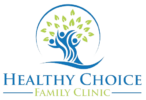
Chronic diseases—conditions like diabetes, hypertension, heart disease, and asthma—affect millions of people worldwide. Managing these diseases often requires a comprehensive, multi-faceted approach that addresses not just the physical symptoms but also the emotional and social aspects of health. Family clinics play a vital role in this management, serving as a hub for integrated care that can significantly improve patients’ quality of life. Here’s a closer look at how family clinics contribute to effective chronic disease management.
1. Comprehensive Care
Family clinics provide holistic care that addresses the whole person, not just specific symptoms. Healthcare professionals in these settings often include family physicians, nurse practitioners, dietitians, and mental health specialists. This team approach ensures that all aspects of a patient’s health are considered, from medical treatment to lifestyle changes and emotional support.
2. Patient Education and Empowerment
One of the primary roles of family clinics is to educate patients about their chronic conditions. Understanding the disease, its implications, and management strategies empowers patients to take control of their health. Family clinics often provide resources, workshops, and one-on-one counseling to help patients make informed decisions about their care, including medication management and lifestyle modifications.
3. Personalized Treatment Plans
Chronic disease management is not a one-size-fits-all approach. Family clinics excel at creating personalized treatment plans that consider individual patient needs, preferences, and circumstances. These plans can include medication regimens, dietary recommendations, exercise programs, and mental health support tailored to each patient’s lifestyle and goals.
4. Continuous Monitoring and Follow-Up
Chronic diseases require ongoing management and regular check-ups. Family clinics offer continuity of care, allowing healthcare providers to monitor patients’ conditions over time. Regular follow-up appointments enable adjustments to treatment plans as needed and help catch any complications early. This ongoing relationship fosters trust and improves adherence to treatment regimens.
5. Integrated Behavioral Health Services
Mental health is often intricately linked to chronic disease management. Family clinics are increasingly incorporating behavioral health services, recognizing that managing stress, anxiety, and depression can significantly impact patients’ physical health. By addressing both mental and physical health, family clinics can help patients develop healthier coping mechanisms and improve overall well-being.
6. Coordination of Care
Chronic disease management often involves multiple healthcare providers, including specialists. Family clinics serve as a central point of coordination, ensuring that all healthcare team members are informed about a patient’s progress and treatment. This coordination reduces the risk of fragmented care, minimizes the potential for conflicting treatments, and enhances communication among providers.
7. Community Resources and Support
Family clinics often have strong ties to community resources and support groups. They can connect patients with local programs that offer nutritional counseling, exercise classes, and chronic disease management workshops. These community resources can provide additional support and foster a sense of belonging, which is crucial for long-term success in managing chronic conditions.
8. Focus on Prevention
In addition to managing existing chronic diseases, family clinics emphasize preventive care. They conduct screenings, provide vaccinations, and promote healthy lifestyle choices that can prevent the onset of chronic conditions. By focusing on prevention, family clinics play a crucial role in reducing the incidence and impact of chronic diseases in the community.
Conclusion
Family clinics are essential players in the management of chronic diseases, offering a holistic, integrated approach that addresses both physical and mental health. By providing comprehensive care, patient education, personalized treatment plans, and ongoing support, these clinics empower patients to take charge of their health. As the healthcare landscape continues to evolve, the role of family clinics in chronic disease management will only grow in importance, fostering healthier communities and improving quality of life for countless individuals.
